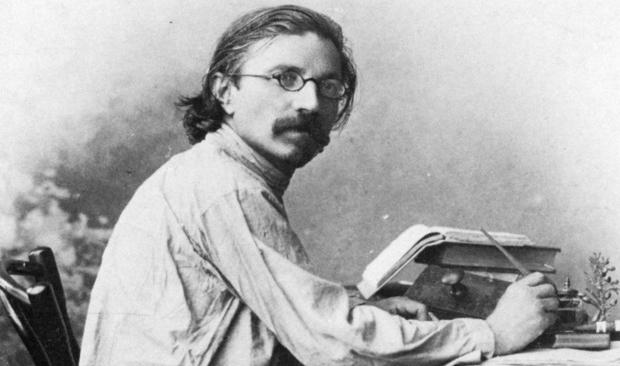After recently seeing Fiddler on Broadway (thank you, sis), and finding their inaccuracies tolerable, along with the affirmation that the only true Tevye is Topol, I decided to take out the original text to compare.

Wow. "If I Was a Rich Man" is so loyal to the source material that the lyrics are practically copied from the book—down to Goldeh's double chin. Yet, in others . . .
The one movie scene that always irritated me is when Tsaytl begs Tevye not to force her to marry Layzer Wolf, to which he initially, coldly replies, "If I say you will, you will."
Sholom Aleichem puts it quite differently. After getting the mix-up vis-a-vis the cow cleared up, Tevye specifically says that the engagement is only on if Tsaytl is willing, and Layzer pours liquor down Tevye's throat to guarantee an understanding. Then, he cockily tells everyone in town before getting her okay.
When Tsaytl runs up to Tevye, weeping, he immediately tells her that she doesn't have to marry Layzer. Shortly thereafter, a confident (yes, I know, confident) Mottel Kamzoyl appears and boldly asks for her hand (they did have an understanding).
Oh, and there's no Yente. Shocking, right? There is Efrayim the Matchmaker, and his lines are pretty good. Goldeh comes off as a simple woman with no wit or wisdom, contrary to her sharp stage tongue (a constant refrain of Tevye's is that he "is no woman"; meaning, he can keep it together unlike some people). As for the name of the movie itself, Fiddler on the Roof, that imagery was ripped from Chagall; it ain't in the text at all.
 By the way, if anyone dares to say that it's harder to raise kids nowadays then ever before, read about Tevye's headaches (based on the happenings of the time). In Russia at the turn of the century, some stupid book came out which glamorized suicide, and teenagers were doing themselves in all over the place—including Jewish ones.
By the way, if anyone dares to say that it's harder to raise kids nowadays then ever before, read about Tevye's headaches (based on the happenings of the time). In Russia at the turn of the century, some stupid book came out which glamorized suicide, and teenagers were doing themselves in all over the place—including Jewish ones.
At least the wedding doesn't coincide with the pogrom. . .
The translator, Hillel Halkin, writes in the (lengthy) introduction:
Oh, and there's no Yente. Shocking, right? There is Efrayim the Matchmaker, and his lines are pretty good. Goldeh comes off as a simple woman with no wit or wisdom, contrary to her sharp stage tongue (a constant refrain of Tevye's is that he "is no woman"; meaning, he can keep it together unlike some people). As for the name of the movie itself, Fiddler on the Roof, that imagery was ripped from Chagall; it ain't in the text at all.
At least the wedding doesn't coincide with the pogrom. . .
The translator, Hillel Halkin, writes in the (lengthy) introduction:
Halkin presents Tevye as the "God-arguer," like Job. Once, as Halkin gave a talk on the subject, a member of the audience said that Tevye was a fool; he should have denied God after all his suffering (not all the misery made it to the musical. That guy caught one break, then it was downhill after that). Halkin notes that was the reaction of Iyov's wife as well: "Curse God, and die!"
For Job—and for Tevye—to curse God is to die, because neither can live in a world without Him. Even if God never answers, even if He never will, Tevye must go on debating with Him, for the minute he stops, his life has lost its meaning. And besides, who is to say when God answers and when He does not? In Job's case, you say, it was obvious: "And then the Lord answered Job out of the whirlwind." Yes: but has you or I been present in that whirlwind, would we have heard anything but wind?
4 comments:
I read the book a few months ago. I have to say, I didn't like it much. I didn't find it particularly funny. I enjoyed The Railroad Stories (in the same volume) a lot more, much funnier.
Really? It made me laugh a few times. Considering the misery, I don't think humor was the ikkur. As for the Railroad stories, I couldn't get through it. It was full of stories and when the punchline is about to be delivered, "Gotta go, this is my stop!"
Thinking back, I think I found bits of it funny but the general bleakness overwhelmed what humour there was for me. Certainly it's the bleakness that dominates in my memory particulalry the suicide and the daughter who stopped talking to him after she married up. (I guess this is the reverse of our disagreement over Dickens - here I think it's too bleak and you think it's funny.)
Good Lord, yes, it is bleak. I marveled at the humor, that here a man takes blow after blow, but grimly holds on to whatever humor and joy is possible. Makes me rethink my own personal kvetching . . .
Post a Comment